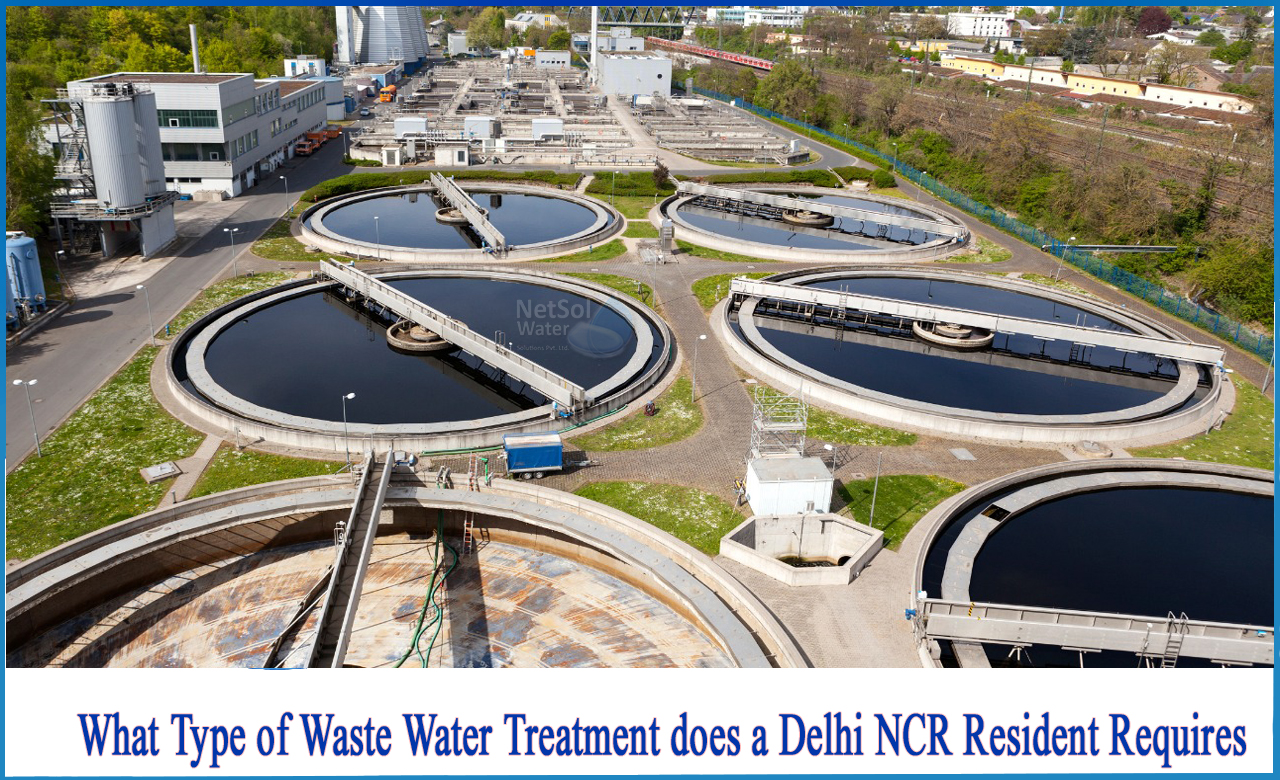In a residential complex, how much waste water is generated?
The CPHEEO (Central Public Health Environmental & Engineering Organization) recommends that fresh water consumption per person ranges between 135 and 150 liters per day. Officially, it is expressed as "liters per capita daily" (lpcd). Generally, public water supply and sewerage bodies/authorities all over the country use the former figure to estimate likely water consumption.
What type of waste water treatment does a Delhi NCR resident requires?
The amount of water consumed by people living in a residential complex without access to an underground sewerage/drainage system is estimated to be 135 lpcd. The total volume (number of residents x 135 liters) enters a sewage treatment plant (STP) on the premises and must be treated by the STP.
In the vast majority of cases, the actual waste generated exceeds this figure comfortably, resulting in STP overloading. This occurs on a regular basis because almost all residential complexes do not install water meters or similar water volume and flow measurement devices to track water consumption in a residential complex/gated community.As a result, when a device is installed and readings are taken, consumption is found to be double, if not triple, the recommended figure of 135 lpcd.
Wastewater in a municipality can pollute and contaminate fresh water supplies. Obtaining the most appropriate treatment solution is critical to preventing further environmental damage. Here's how to find the best neighborhood wastewater treatment solution and figure out what's causing the problem in your neighborhood.
>Obtain a Water Analysis
If you have a wastewater problem, you should hire a water treatment company to perform a water analysis. The incorrect analysis can result in additional pollution or permanent environmental damage. Use a company that has experience dealing with municipal wastewater issues in a safe manner.
>Determine the Treatment Necessary
To clear a problem area, four different types of wastewater treatment solutions can be used. You'll need advice on which one is best for your particular problem.
If you have a sludge problem, you should think about the dewatering process, which involves coagulating or bringing particles in the water together to form a more stable mass. This reduces not only the amount of sludge but also the water content.
Bacteria can be used to eliminate some organic waste. These degrade organic waste and can remove ammonia and phenols, which are sometimes found in wastewater.
Foam can sometimes form in wastewater and obstruct biodegradation in waste treatment plants. Anti-foams are sometimes added to water to prevent this problem and deal with it in a proactive manner.
In the primary and final clarification of wastewater, inorganic and organic polymers are used. As a result of the electrical charge neutralization produced by polymers, solids in wastewater coagulate. Polymers are available as solutions, powders, and emulsions. An expert company will advise you on the best solution for your wastewater problem if you use any of these treatments.
>Controlling Odors
The smell is one of the more unpleasant side effects of wastewater. There are treatment options for wastewater odor, which can be caused by a variety of issues. The material is frequently anaerobic or chemical, and it comes from farm or food production waste. Another source of odor is domestic sewage processing. Hiring an expert will allow you to identify the source of the problem and treat it in a safe manner, avoiding the possibility of contaminating other areas.
>Removal of Phosphorus
Phosphorus can sometimes enter the wastewater system and cause issues. An expert in wastewater treatment solutions can test for phosphorus contaminants and apply the appropriate solution. Phosphorus in water is probably harmless in small amounts, but as levels rise, it becomes toxic. This is a problem that can occur in agricultural areas that have used pesticides.
Final step is to analyze the type of wastewater treatment plant the resident area requires by evaluating all the points above mentioned to get a detailed knowledge about the condition, and according to that, the treatment plant should be selected.
For expert advice from skilled engineers, consult Netsol Water.
Netsol Water is Greater Noida-based leading water & wastewater treatment plant manufacturer. We are industry's most demanding company based on client review and work quality. We are known as best commercial RO plant manufacturers, industrial RO plant manufacturer, sewage treatment plant manufacturer, Water Softener Plant Manufacturers and effluent treatment plant manufacturers. Apart from this 24x7 customer support is our USP. Call on +91-9650608473, or write us at enquiry@netsolwater.com for any support, inquiry or product-purchase related query.



